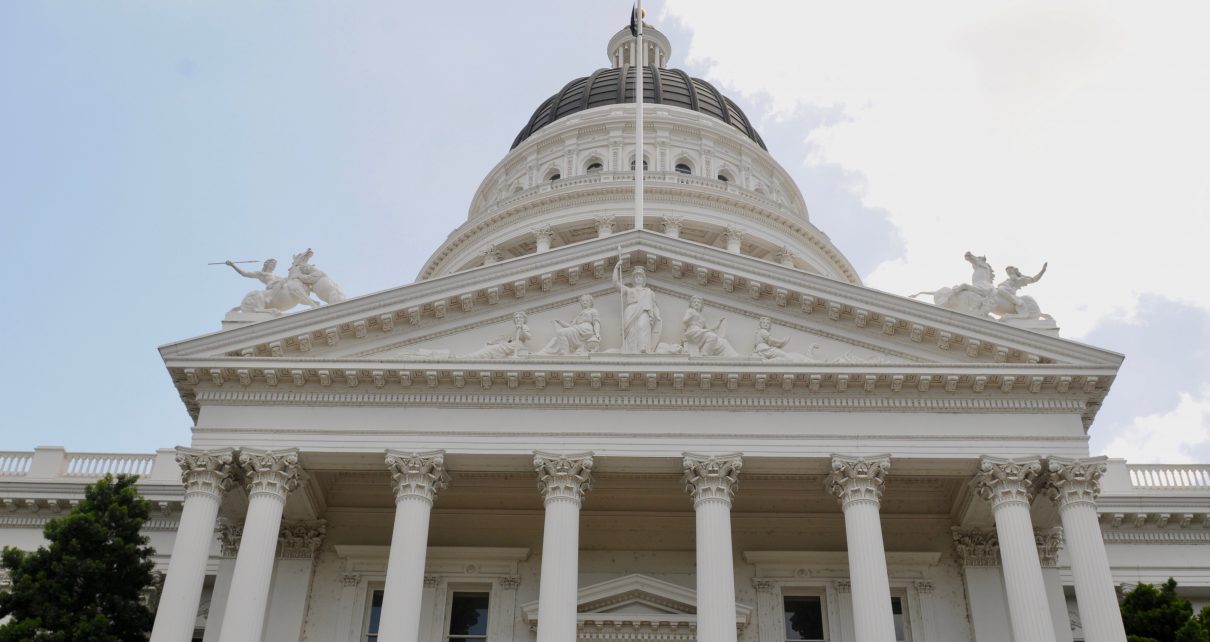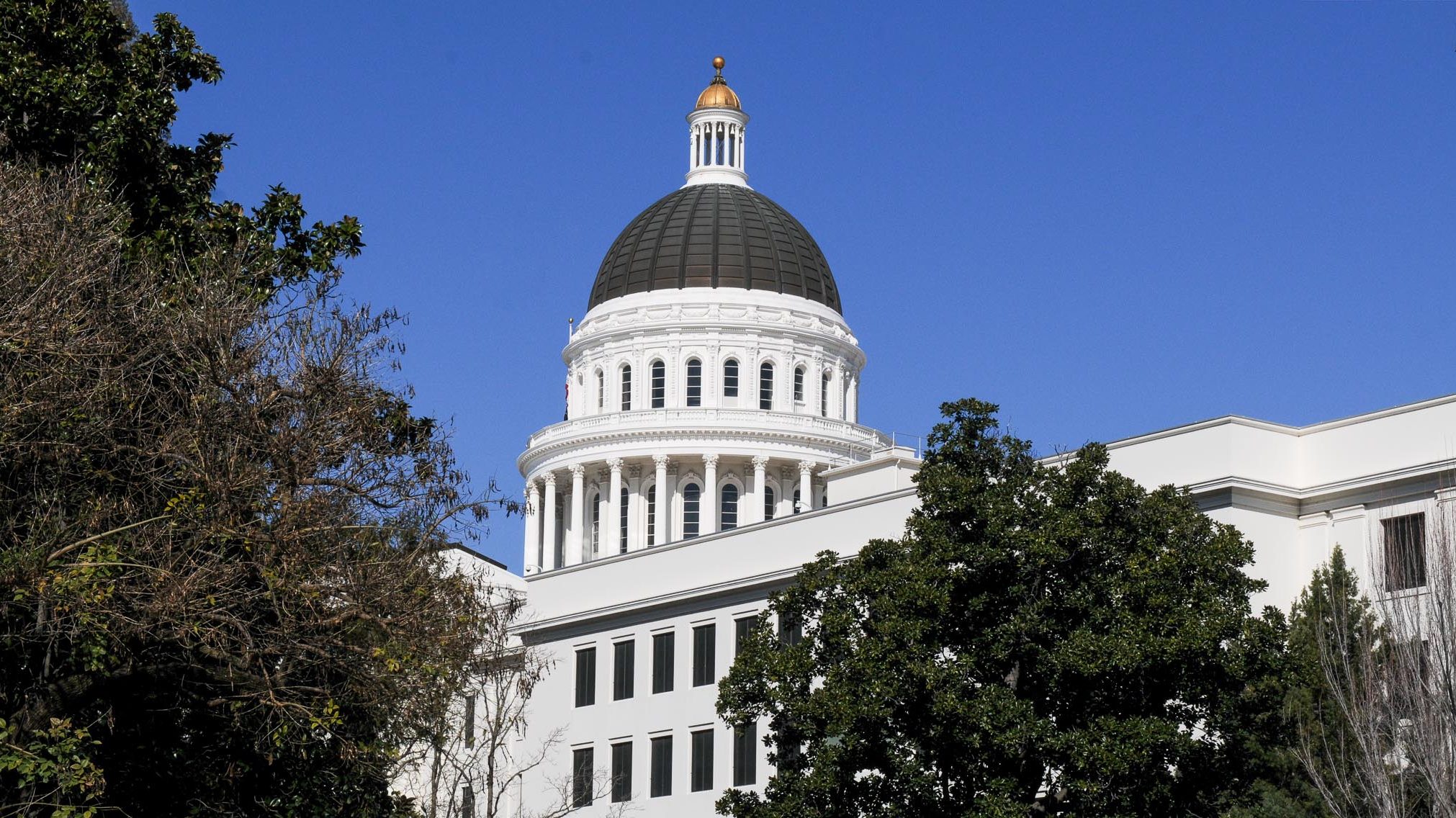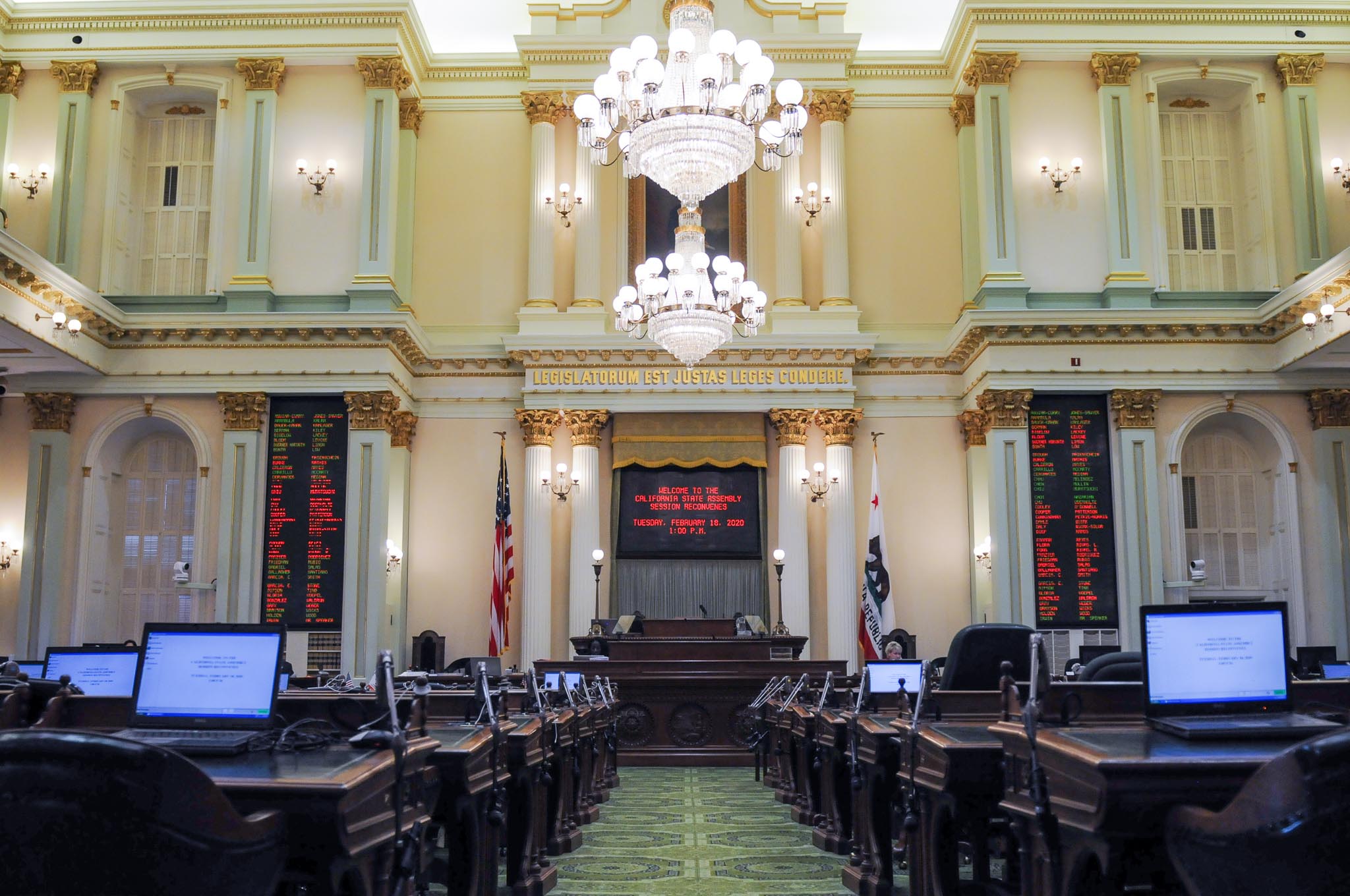
Capitol Building. (Photo: Kevin Sanders for California Globe)
California Tax Budget Trailer Bill Review
AB 158 was gutted-and-amended to deal with tax relief
By Chris Micheli, August 27, 2022 5:47 pm
On August 26, Assembly Bill 158 by the Assembly Committee on Budget was gutted-and-amended to deal with tax relief. The bill would amend Sections 17053.71, 17131.8, 23628, and 24308.6 of, add Section 17053.75 to, and repeal and add Section 19551.3 of, the Revenue and Taxation Code, amend Section 8161 of the Welfare and Institutions Code, and repeal Section 26 of Chapter 264 of the Statutes of 2020.
Section 1 of the bill would amend Revenue and Taxation Code Section 17053.71 to make a technical correction.
Section 2 of the bill would add Revenue and Taxation Code Section 17053.75 to provide, for taxable years beginning January 1, 2024, a tax credit in greater amount of (1) for dues paid that taxable year by the qualified taxpayers by the workers’ tax credit adjustment factor, or (2) for the amount equal to dues paid in that taxable year by the qualified taxpayer up to $100.
It is the intent of the Legislature that the workers’ tax credit adjustment factor and the maximum dollar amount allowed is to be set to limit the annual revenue loss to no more than $400 million. The bill would define the following terms: “bona fide labor organization,” “dues,” and “qualified taxpayer.”
This credit is in lieu of any other credit or deduction that the qualified taxpayer may be allowed for these amounts. If the credit exceeds the tax liability, then the excess is credited against other amounts due and the balance refunded to the qualified taxpayer if monies are appropriated by the Legislature for that purpose.
To comply with Section 41 requirements, there are legislative findings and declarations regarding the purpose of the credit allowed, which is to help individuals with the cost of being a member of a union. There are performance indicators for the Legislature to use, and a requirement that the FTB provide an annual report to the Legislature containing specified information.
Section 3 of the bill would amend Revenue and Taxation Code Section 17131.8 to clarify that amendments made earlier this year are operative for taxable years beginning on or after January 1, 2019.
Section 4 of the bill would repeal Revenue and Taxation Code Section 19551.3 require the exchange of data between the Department of Health Care Services and the Franchise Tax Board.
Section 5 of the bill would add Revenue and Taxation Section 19551.3 to require the Department of Social Services and the Department of Health Care Services to exchange data with the Franchise Tax Board for individuals who may qualify for the California Earned Income Tax Credit. The data is to remain confidential and only be used for specified purposes.
The DSS and DHCS must annually provide to the FTB the results and findings of outreach conducted to measure whether the outreach achieves its intended purpose of increasing the number of claims for the federal earned income tax credit, the California earned income tax credit, and other state and federal antipoverty tax credits. Required information is specified.
Section 6 of the bill would amend Revenue and Taxation Code Section 23628 to make a technical correction.
Section 7 of the bill would amend Revenue and Taxation Code Section 24308.6 to clarify that amendments made earlier this year are operative for taxable years beginning on or after January 1, 2019.
Section 8 of the bill would amend Welfare and Institutions Code Section 8161 to substitute the Franchise Tax Board for the Controller for making a one-time payment to each qualified recipient.
Section 9 of the bill would repeal Section 26 of Chapter 64 from 2020. Section 10 of the bill would appropriate $20,000 to the FTB for administering the data sharing provisions of this act.
Section 11 of the bill contains legislative findings and declarations that the application of the exclusion from gross income for loan amounts forgiven pursuant to the federal PPP Extension Act of 2021 to taxable years beginning on or after January 1, 2019, as provided by this act, serves the public purpose of securing the financial condition of businesses that were harmed by the COVID-19 pandemic, and does not constitute a gift of public funds.
Section 12 of the bill provides that no reimbursement to a local agency or school district is required by this act. Section 13 of the bill provides that this bill is related to the Budget Bill and will take effect immediately.
- Temporary Restraining Orders in Family Law - May 15, 2025
- Recycled Purchase Mandates on Local Governments - May 14, 2025
- Breach or Repudiation of Sales under the Commercial Code - May 13, 2025








4 thoughts on “California Tax Budget Trailer Bill Review”